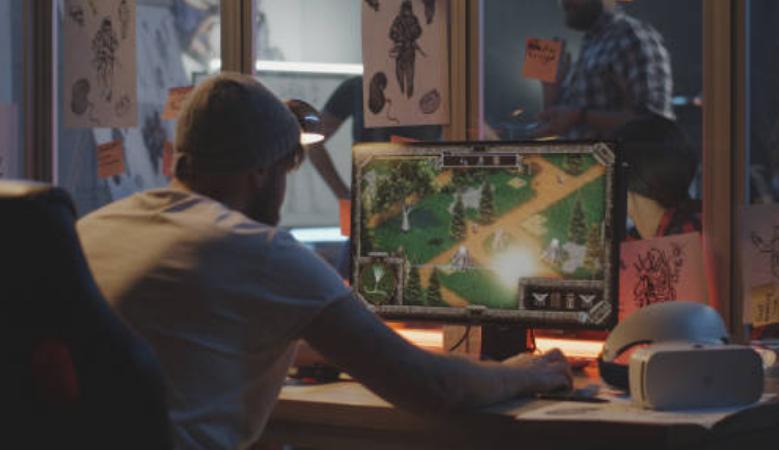5 Elements That Make a Great RPG

You are likely to have played RPGs or seen games that you don’t think of as RPGs. You may also have seen RPG-themed games dismissed by other gamers. Unlike other genres, adventure in RPG games often give the players the chance to control the fate and outcome of the game, but it will depend as well on your skills. For skill development, it would be better to learn first How to Play Unison League on Windows. However, if you’re not really into this type of gaming, you may have wondered about the RPG elements in games. Therefore in this post, we will tackle what makes RPG great.
Setting
 Setting is a key element in many RPGs. When I say setting, I don’t mean the 2D and 3D art used to create the map. I mean the history and geography of the area, the cultures and religions of the people who inhabit it, the traditions, factions, legends, and technologies that are important to them.
Setting is a key element in many RPGs. When I say setting, I don’t mean the 2D and 3D art used to create the map. I mean the history and geography of the area, the cultures and religions of the people who inhabit it, the traditions, factions, legends, and technologies that are important to them.
This will inspire and motivate players to participate in role-playing games. Great settings can be great starting points for role-playing games. For this reason, many popular series such as Star Wars, Star Trek, and Lord of the Rings are used to develop role-playing games. But even games with very simple or unoriginal settings can be great RPGs if all the other elements are well done. Elder Scrolls is an example of a game that couldn’t be called original when Arena first came out in 1994. Most of the content was obviously derivative. However, the developers managed to build a rich story through the books and dialogue. This allows players familiar with the setting to immerse themselves in one of the most detailed and complex fantasy worlds ever created.
Character Creation
 Once you’ve created a wonderful setting, it’s natural to want to spend time in it. To do this, you create a character with whom you can explore the world. You’ll want to experience different races, professions, and factions as you explore the world.
Once you’ve created a wonderful setting, it’s natural to want to spend time in it. To do this, you create a character with whom you can explore the world. You’ll want to experience different races, professions, and factions as you explore the world.
I prefer role-playing games where I have complete control over my character’s race, gender, appearance, abilities, equipment, and history. I feel closer to my character the more control I have. It’s also easier to be immersed in the setting. Each player may have a different opinion about player choice and the narrative power of roleplaying games. Therefore, it is best to leave it to individual preferences. There will always be developers who are more interested in storytelling than others.
Exploration
Once you have decided on a character or setting, your first task is to explore the game world. There is a wide variety of game world types. They range from linear “chained” ones, where the player moves through narrative fragments or scenes and is not allowed to leave them, to zoned world maps, where you have to unlock successive maps as you complete the previous ones, to open world maps, where the player can move beyond the edge of the map indefinitely, the only limitation being the outer area of the map. However, exploration is not just about moving around the map. It is important to explore how interactive and dynamic the world is. You will feel much more comfortable if you can pick up and interact with various objects. A world with dynamic weather, a true day/night cycle, and realistic plants and animals feels much more alive.
Quests
 Most RPGs offer some type of quest or quest mechanic. They motivate the character to travel the world, gain experience, create wealth, and influence the game world. Quests add length and fun to the game. The more quests there are, the easier it is to complete the game and the faster your character progresses.
Most RPGs offer some type of quest or quest mechanic. They motivate the character to travel the world, gain experience, create wealth, and influence the game world. Quests add length and fun to the game. The more quests there are, the easier it is to complete the game and the faster your character progresses.
The better the RPG, the more challenging the quests are. The best RPGs have a wide variety of quests. Many are interesting and contain ramifications or twists. RPGs that don’t offer much more than recovery or escort missions are less fun.
Gameplay Variety
Role-playing games offer the most video game options. Many non-RPG games focus on a limited number of elements, such as racing and FPS games. In role-playing games, you can achieve mission objectives in a variety of ways. In fantasy role-playing games, you can use stealth, magic, or combat to complete a quest. In a science fiction role-playing game, you can improve your skills by sneaking, fighting, or using gadgets. There are many other gameplay options, such as traveling the world and finding materials to create new items, crafting, swimming, driving, riding, climbing, and solving logic puzzles. You can also join factions and guilds to get married, hire followers or recruit companions.


